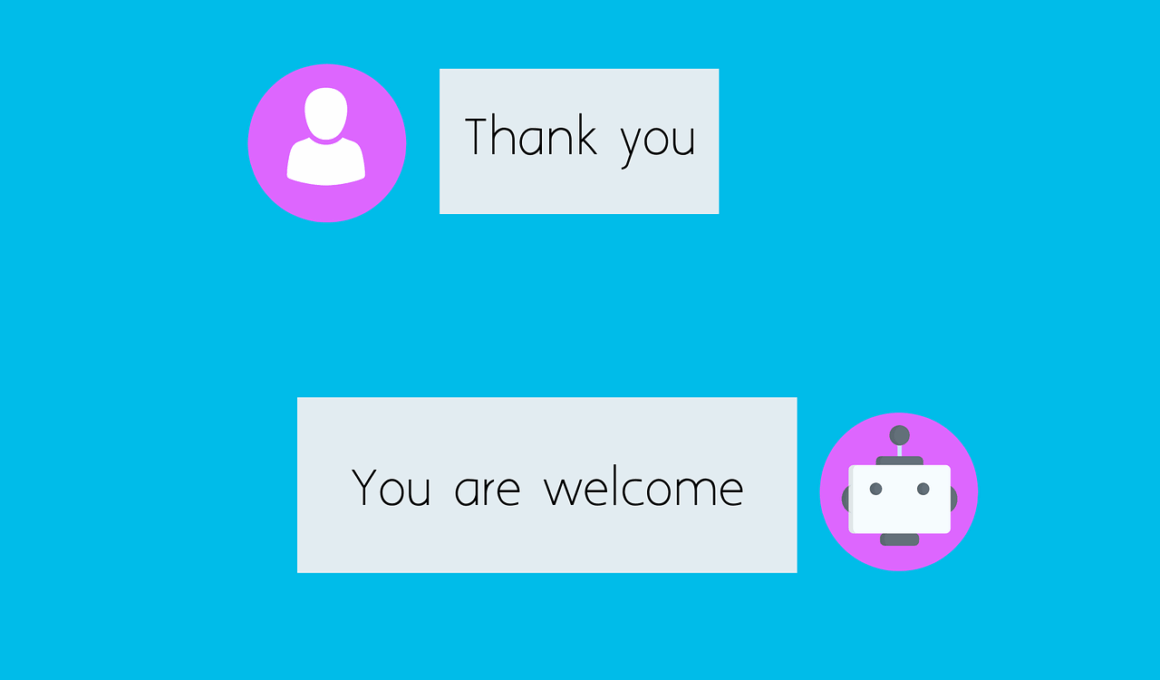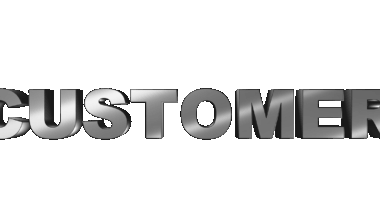Top 10 Benefits of Customer Service Automation for Marketers
Customer service automation offers substantial advantages to marketers, significantly improving efficiency and user satisfaction. Marketers can utilize this automation to streamline customer interactions, allowing for quicker responses to customer inquiries. Automated systems can handle repetitive questions and tasks, freeing up human agents for more complex issues. This not only optimizes resources but ensures that your team can focus on high-priority tasks. A well-implemented customer service automation platform can enhance the overall customer experience. It’s essential to select a system that integrates seamlessly with existing marketing tools. Doing so allows marketers to conform their strategies and optimize customer touchpoints effectively. Moreover, automated responses can be customized, ensuring messaging resonates with the brand’s voice. The consistency in communication builds trust, which is integral for customer loyalty. Implementing automation can also lead to increased return on investment (ROI). Effective automation tools can analyze customer data in real-time, providing marketers with valuable insights that inform strategic decisions. Understanding customer behavior better enhances targeted campaigns and improves conversion rates.
A significant advantage of customer service automation is its ability to reduce operational costs. By minimizing the dependence on human intervention for routine queries, businesses save on labor costs while optimizing service delivery. Automation tools are available 24/7, meaning customers can obtain answers to their questions any time of day. This leads to increased customer satisfaction levels, a critical component for business success. Efficiency is amplified, as automated responses often yield quicker resolutions. Moreover, implementing a robust customer support automation system can lead to decreased error rates. Automated systems process requests and issues with consistent accuracy, minimizing the likelihood of human mistakes. Moreover, businesses can scale their service capabilities without proportionately increasing costs. This scalability ensures that even during peak times, customer demand is effectively met. Additionally, customer service automation can offer advanced analytics capabilities. These analytics allow marketers to derive insights and trends from customer interactions, thus refining marketing strategies. The data generated through automation can highlight opportunities for upselling and cross-selling products, enabling businesses to exploit their full potential in growing the customer base. Further, automation greatly enhances response times, which is crucial for improving a company’s image and reputation.
Another critical benefit of customer service automation is the enhancement of personalization opportunities. With sophisticated automation tools, marketers can create tailored customer journeys based on previous interactions. This improved service allows for a unique experience tailored to individual preferences. By analyzing customer behavior, marketers can provide recommendations that resonate better with their audience, driving engagement. Customer data collected through automation can inform marketing campaigns, enabling personalization that leads to higher satisfaction rates. Leveraging this data, marketers can also segment their audience based on various criteria, ensuring that communication is relevant. This also facilitates targeted promotions or messages, increasing their feasibility and effectiveness significantly. Automation can also help streamline the onboarding process for new customers, ensuring they feel welcomed and informed from the beginning. Providing helpful resources during this phase sets a positive tone for future interactions and can retain customers long term. Furthermore, automation aids in consistency across various channels. It’s vital for a customer’s experience to be coherent whether they reach out through social media, email, or chat. Automated responses ensure that branding and messaging align across all platforms effectively, strengthening brand identity.
Integration with Other Tools
Integration with other marketing tools represents another advantage of customer service automation. Marketers often utilize various platforms and technologies, and seamless integration can enhance overall efficiency. Customer service automation tools can easily connect with CRM software, streamlining data flow and reducing the chances of errors. This connectivity enables marketers to have a holistic view of customer interactions, aiding decision-making. Having centralized customer data strengthens relationships, as marketers can leverage insights from previous interactions to tailor follow-ups. Additionally, effective integration allows marketers to segment their audience more efficiently, resulting in highly targeted campaigns. Automating routine inquiries through tools such as chatbots also contributes to a consistent user experience across multiple channels. Customers can interact through their preferred communication methods, receiving immediate assistance regardless of the platform. An integrated approach reduces the chances of information silos, ensuring that no customer data falls through the cracks. For businesses, this means improved accountability in addressing customer needs. The quicker responses enabled by automation greatly benefit overall customer satisfaction. In the long run, this efficiency reduces churn rates as well, allowing companies to maintain a loyal customer base that returns for future purchases.
Furthermore, customer service automation supports enriching team collaboration as well. Certain automation platforms include features that allow team members to collaborate seamlessly, even while automating responses. This means that while customers receive immediate answers to common questions, complex cases can be escalated efficiently. Automated systems can assign cases to the right team members based on their expertise and workload, improving internal response times. The clarity in these processes also ensures customers are aware of who is assisting them, establishing transparency. Additionally, by facilitating a culture of collaboration through automation, businesses can ensure continual training and development opportunities for their employees. As automated systems handle repetitive tasks, human resources can focus on upskilling and developing customer relationships. The knowledge shared among team members can boost overall team morale and create a supportive work environment. One key aspect is that these systems encourage feedback from marketing teams, enabling continuous optimization of automated resources. Through this critical collaboration, marketers can fine-tune messaging and responses, enhancing customer interactions further. In the long run, fostering a collaborative environment enhances proficiency and drives company performance upwards.
Lastly, customer service automation is invaluable for maintaining competitive advantages in the marketplace. As more businesses recognize the importance of enhancing customer experience through technology, adopting automation tools becomes essential. Customers today expect quick responses and efficient service, and businesses that meet these expectations will outshine their competitors. With automation, businesses can provide a higher level of service consistently, regardless of demand fluctuations. Automated solutions can also allow brands to handle high-volume inquiries without compromising response quality. In an era where personalization matters, businesses need tools enabling them to understand and anticipate customer needs effectively. The insights gained from customer interactions can drive strategic decisions that position a company favorably among competitors. Furthermore, leveraging automation opens doors for innovative marketing campaigns. By analyzing data patterns, companies can anticipate trends that allow them to stay ahead of the curve. Companies will find greater brand loyalty as they exceed customer expectations by incorporating automated system capabilities. At its core, customer service automation is not merely a tool; it’s a strategic choice that empowers marketers to bolster relationships, improve efficiency, and innovate continuously in a fast-paced environment.
In conclusion, implementing customer service automation can tremendously enhance the marketing landscape by delivering multitudes of benefits. From cost reduction to improved turnaround times, every aspect of customer interaction is streamlined through automation. Additionally, businesses can capitalize on advanced data analytics, enabling dynamic marketing strategies that adapt over time. The ability to provide increased personalization and timely service fosters customer loyalty while enhancing satisfaction. It also equips marketing teams with essential insights, allowing for strategic planning that is data-driven. Partnering automation with effective practices amplifies both customer and employee experiences, creating a balanced approach to organizational success. Integration with existing marketing systems further enhances the overall efficiency of operations. This integration leads to smarter decision-making, as teams access comprehensive customer data from one source. The collaborative nature of automation should not be overlooked, as it strengthens relationships between teams and across departments, leading to a culture of continuous improvement. To remain competitive, embracing customer service automation is no longer optional; it has become imperative for businesses to thrive in today’s fast-paced digital environment. As emerging technologies continue to evolve, the advantages of automation will only burgeon further, leading to remarkable growth opportunities.
Ultimately, the choice to implement customer service automation is a strategic investment that can yield long-lasting rewards. Marketers who recognize the potential of these tools will find that they can significantly enhance customer interactions while optimizing resources. As customer expectations continue to rise, automated systems offer essential advantages in meeting these demands efficiently. It is critical to choose the right automation solution that aligns with organizational goals and customer needs. Implementation should focus on ensuring that the solutions continually evolve, leveraging advancements in technology. Consistent monitoring and adaptation are also key to successfully harnessing the power of automation. Strong customer relationships will form as companies work to understand and meet customer needs efficiently and effectively. While the challenges of automation exist, the potential benefits far outweigh them. Continuous evolution within the marketing landscape necessitates agility, and automation empowers marketers to stay flexible and responsive to dynamics in consumer behavior. As automation technologies advance, the benefits will only multiply, paving the way for a brighter marketing future. Ultimately, investing in customer service automation today will position brands to thrive and achieve their desired growth in the future.


